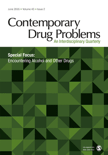
CONTEMPORARY DRUG PROBLEMS
Scope & Guideline
Examining the Multifaceted Challenges of Drug Use
Introduction
Aims and Scopes
- Interdisciplinary Research on Drug Use:
Explores drug use from various disciplinary perspectives, including sociology, psychology, public health, and law, to understand the multifaceted nature of substance use and its implications. - Harm Reduction and Policy Analysis:
Examines harm reduction strategies and drug policies, advocating for approaches that prioritize health and social equity over punitive measures. - Social and Cultural Dimensions of Drug Use:
Investigates how social norms, stigma, and cultural contexts shape drug use behaviors and attitudes, particularly among marginalized communities. - Impact of Technology and Media on Drug Use:
Analyzes the role of digital platforms and media in shaping drug culture, access to substances, and harm reduction practices. - Gender and Intersectionality in Drug Research:
Focuses on how gender, race, and class intersect to influence experiences with drug use and access to services, highlighting the unique challenges faced by different groups.
Trending and Emerging
- Community-Led Harm Reduction Initiatives:
There is a notable increase in research focusing on community-driven harm reduction strategies, emphasizing the role of local organizations and peer support in addressing drug-related harms. - Impact of Social Media on Drug Culture:
Emerging studies explore how social media platforms influence drug use behaviors, community formation, and harm reduction outreach, highlighting the digital landscape's role in contemporary drug issues. - Gendered Perspectives on Drug Use:
An increasing focus on the experiences of women and gender minorities in drug use and addiction, addressing unique challenges and barriers they face within treatment and policy contexts. - Intersectionality in Drug Research:
Research that considers the intersections of race, class, gender, and sexuality in understanding drug use patterns and policy impacts is gaining traction, reflecting a more holistic approach to drug issues. - The Role of Technology in Drug Access and Treatment:
Emerging themes explore how technology, including telehealth and online support networks, is transforming access to treatment and harm reduction services, particularly in the context of the COVID-19 pandemic.
Declining or Waning
- Traditional Law Enforcement Perspectives:
Research focusing solely on law enforcement approaches to drug issues has decreased, indicating a shift towards more nuanced discussions on harm reduction and community empowerment. - Biological Determinism in Addiction Studies:
There is a waning interest in studies that emphasize biological factors as determinants of addiction, with a growing recognition of the importance of social and environmental influences. - Single Substance Focus:
Papers concentrating on single substances (e.g., alcohol or cannabis) without considering poly-drug use or broader contextual factors are becoming less common, reflecting a more integrated approach to substance use research. - Historical Drug Policy Analysis:
While historical perspectives are valuable, there seems to be a reduced focus on historical drug policy analysis in favor of contemporary and future-oriented discussions that address current challenges. - Pharmacological Solutions to Addiction:
Research advocating for pharmacological interventions as standalone solutions is declining, as the field increasingly values comprehensive, multi-faceted approaches that incorporate social support and community resources.
Similar Journals
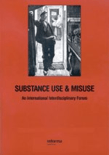
SUBSTANCE USE & MISUSE
Exploring the complexities of substance use for a healthier future.SUBSTANCE USE & MISUSE, published by Taylor & Francis Inc, is an esteemed academic journal dedicated to the multifaceted study of substance use and its implications on health and society. With a notable impact factor and categorized in the Q2 quartile across multiple fields—including Health (Social Science), Medicine (Miscellaneous), Psychiatry and Mental Health, as well as Public Health—this journal serves as an essential platform for researchers, professionals, and students alike. Spanning from 1966 to 2024, it provides a rich archive of peer-reviewed articles that explore current trends, innovative research, and evidence-based practices in the management and understanding of substance use. The journal offers various access options, catering to the diverse needs of its audience and affirming its commitment to fostering scholarly discourse in the United Kingdom and beyond. By engaging with this journal, readers can enhance their understanding of the complexities surrounding substance use, making it a crucial resource for advancing knowledge and informing policy in this critical area of public health.

Drug Healthcare and Patient Safety
Transforming healthcare delivery with cutting-edge insights.Drug Healthcare and Patient Safety is a premier Open Access journal, published by DOVE MEDICAL PRESS LTD since 2009, dedicated to advancing the understanding and practices surrounding medication safety and healthcare delivery. With its ISSN 1179-1365 and E-ISSN matching, this New Zealand-based journal not only fosters global discourse but also prioritizes the dissemination of research that intersects both health policy and pharmacology. Categorized as Q2 in Health Policy and Q3 in Pharmacology for the year 2023, it occupies a notable position within the academic community, as reflected by its Scopus rankings, which place it in the 66th and 45th percentiles of its respective categories. Drug Healthcare and Patient Safety aims to provide a platform for researchers, practitioners, and students to share innovative findings, promote safe medication practices, and explore the implications of health policy on patient outcomes. As an Open Access journal, it ensures that vital research is accessible to a wider audience, making significant contributions to the ongoing dialogue in the fields of healthcare and pharmacovigilance.
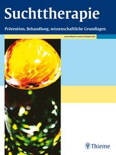
Suchttherapie
Connecting Professionals with Essential Insights in SuchttherapieSuchttherapie, an esteemed journal published by GEORG THIEME VERLAG KG, serves as a critical platform within the fields of Applied Psychology and Psychiatry and Mental Health. Established in 2000 and continuing through 2024, this journal is committed to advancing the understanding and treatment of addiction and related psychological issues. Although it currently stands in the Q4 Quartile ranking and is categorized as low percentile in both Scopus Ranks and impact metrics, its significance lies in its dedication to disseminating cutting-edge research and clinical findings that contribute to the evolving landscape of therapeutic practices. Published in Germany, the journal facilitates unlimited access to the vital discourse surrounding mental health and addiction treatment, making it a valuable resource for researchers, professionals, and students alike seeking to enhance their knowledge and skills in this important area of study. As the field continues to grow, Suchttherapie plays a pivotal role in bridging practice with academic rigor, ensuring that readers remain informed on the latest methodologies and insights.
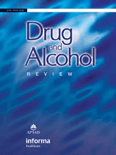
DRUG AND ALCOHOL REVIEW
Transforming research into impactful practices.DRUG AND ALCOHOL REVIEW, published by Wiley, is a leading journal dedicated to advancing the scholarship in the fields of drug and alcohol research. Since its inception in 1989, this esteemed publication has provided a critical platform for the dissemination of innovative research findings, reviews, and theoretical papers, addressing pressing issues in substance use and addiction. With an impact factor that places it in the Q1 category in both Health (social science) and Medicine (miscellaneous), it ranks #78 out of 371 in the Scopus index for Health and #115 out of 398 in Medicine, reflecting its significant influence and high citation rates among scholars. The journal is committed to fostering a multidisciplinary approach, integrating perspectives from psychology, sociology, public health, and medicine, to inform policy and practice. Accessible to researchers and practitioners alike, *DRUG AND ALCOHOL REVIEW* serves as an essential resource for anyone invested in understanding and addressing the complexities of drug and alcohol use in society.
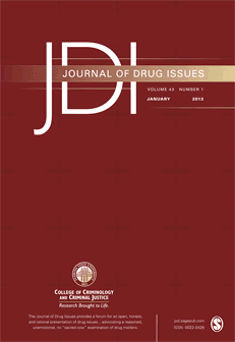
JOURNAL OF DRUG ISSUES
Illuminating the Intersection of Health and Substance UseJOURNAL OF DRUG ISSUES, published by SAGE PUBLICATIONS INC, serves as a pivotal platform for researchers and professionals dedicated to the multifaceted exploration of drug-related topics across various fields, including health, medicine, psychiatry, and public health. With an ISSN of 0022-0426 and an E-ISSN of 1945-1369, this esteemed journal has maintained a consistent output since its inception in 1971 and is set to continue its contributions through 2024. Reflecting its high academic standards, it has achieved a Q2 ranking in Health (Social Science) and Q3 rankings in several related categories, underscoring its relevance and influence among scholarly work. The journal is indexed in Scopus, with respectable rankings in various medical and health-related disciplines, highlighting its role as an essential resource for those invested in the vigorous discourse surrounding drug issues. Although not an open-access publication, the journal ensures that access to its extensive research findings remains available to a broad audience, solidifying its importance in advancing knowledge and informing best practices in the field.

Harm Reduction Journal
Advancing harm reduction for a healthier tomorrow.Welcome to the Harm Reduction Journal, a premier academic platform published by BMC, dedicated to advancing the field of harm reduction since its inception in 2004. With an impressive track record as an Open Access publication, this journal addresses critical topics within the broad scope of medicine, psychiatry, and public health, making it indispensable for researchers, healthcare professionals, and students alike. As of 2023, it proudly holds a Q1 ranking in prestigious categories including Medicine (Miscellaneous), Psychiatry and Mental Health, and Public Health, Environmental and Occupational Health, reflecting its high impact and significance in the academic community. The journal is notable for its comprehensive discussions on innovative harm reduction strategies, public policy considerations, and evidence-based practice, fostering collaboration and knowledge exchange. With a global reach and commitment to enhancing health outcomes, the Harm Reduction Journal serves as a vital resource in the ever-evolving landscape of public health and addiction research.

Current Addiction Reports
Pioneering insights into addiction treatment and trends.Current Addiction Reports, published by SPRINGERNATURE, is a leading journal dedicated to the comprehensive study of addiction in its various dimensions, with a particular focus on the latest clinical developments and research in Clinical Psychology and Psychiatry and Mental Health. Since its inception in 2014 and through to 2024, the journal has established itself as a pivotal resource for researchers, professionals, and students alike, currently holding a prestigious Q1 ranking in both relevant categories. With an impressive Scopus rank of #46 in Clinical Psychology and #129 in Psychiatry and Mental Health, it occupies a significant position within the field, reflecting its commitment to high-quality scholarship and impactful findings. The journal offers open access options, ensuring that vital research is readily available to a global audience. By fostering a deeper understanding of addiction trends and innovative treatment methodologies, Current Addiction Reports plays an essential role in advancing knowledge and improving clinical practices.
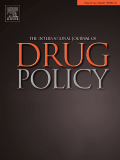
INTERNATIONAL JOURNAL OF DRUG POLICY
Connecting Research and Policy for Better Health OutcomesInternational Journal of Drug Policy, published by Elsevier, stands as a crucial scholarly platform dedicated to advancing the field of drug policy research. With an impactful focus on health policy and medicine, this journal holds a prestigious Q1 ranking in both Health Policy and Medicine (miscellaneous) categories as of 2023, reflecting its high-quality contributions to the discourse surrounding drug use, regulation, and public health. Spanning publication from 1998 to 2024, the journal's rich archive of research serves as an essential resource for researchers, professionals, and students alike. While the journal is not open access, it provides invaluable insights and significant findings that drive policy-making decisions and foster evidence-based practices in drug management and health interventions. With a Scopus rank of #28 out of 310 in Health Policy and #55 out of 398 in Medicine (miscellaneous), the International Journal of Drug Policy is indispensable for those committed to exploring and understanding the complexities of drug-related issues on a global scale.
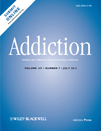
ADDICTION
Exploring the complexities of addiction and recovery.ADDICTION, published by Wiley, is a highly regarded academic journal that serves the vibrant fields of Medicine and Psychiatry and Mental Health. With an impressive impact factor reflective of its significance—ranking in the top 8% and 7.5% of its categories respectively—this journal is esteemed for its rigorous peer-reviewed research which spans a wide array of topics related to addiction, including pharmacology, prevention, and treatment modalities. Since its inception in 1993, ADDICTION has continually provided a platform for innovative research, shaping the discourse and influencing clinical practices worldwide. This journal, based in the United Kingdom at a prestigious location in Hoboken, NJ, stands as a beacon for researchers, practitioners, and students alike, committed to advancing understanding and strategies to combat addiction-related challenges. Although it is not an Open Access publication, the journal's contribution to the field remains invaluable, ensuring that cutting-edge findings are disseminated widely among professionals dedicated to improving mental health outcomes.
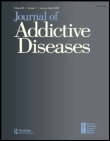
JOURNAL OF ADDICTIVE DISEASES
Pioneering Research in Addiction and RecoveryJOURNAL OF ADDICTIVE DISEASES, published by ROUTLEDGE JOURNALS, TAYLOR & FRANCIS LTD, serves as a pivotal platform for researchers, clinicians, and students in the realms of clinical psychology, psychiatry, and addiction studies. With a distinguished history dating back to its inception in 1991, this journal spans critical research developments with its current scope covering converged years from 2018 to 2024, ensuring a robust repository of knowledge. Notably, it holds a respectable impact factor and is categorized in Q2 quartiles across several disciplines including Clinical Psychology, Medicine (miscellaneous), and Psychiatry and Mental Health for 2023, reflecting its impactful contributions to the scientific community. Despite the journal not currently offering Open Access, it remains highly ranked, occupying positions in the top percentiles of Scopus rankings. This journal emphasizes the importance of disseminating high-quality research focused on addictive behaviors and diseases, thereby addressing vital clinical and public health challenges.